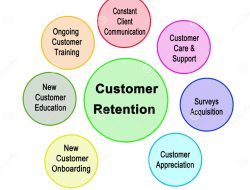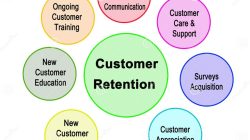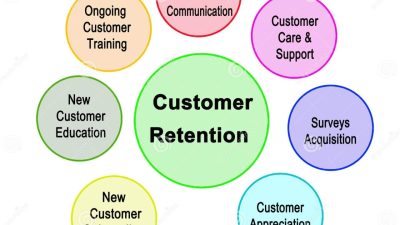Marketing Accounting Services That Help Clients Select the Right Method is your gateway to unlocking the full potential of your business’s financial strategy. In a world where every decision can impact your bottom line, selecting the correct accounting method becomes paramount. These services not only define the parameters of your financial landscape but also enhance your decision-making capabilities, ensuring you choose the right path tailored to your unique business needs.
Understanding the intricacies of marketing accounting services is essential for any client. These specialized services play a crucial role in guiding businesses through the complex web of accounting methods, helping them navigate the significant implications of their choices. By leveraging tailored solutions and up-to-date technology, clients can make informed decisions that align with their goals.
Understanding Marketing Accounting Services
Marketing accounting services are specialized tools designed to help businesses measure, analyze, and enhance their marketing performance. These services play a crucial role in identifying the effectiveness of marketing strategies, ensuring businesses can make informed decisions backed by data. In a rapidly changing marketplace, the ability to adapt and select the right marketing methods is imperative for success, allowing clients to focus their resources where they will yield the highest return on investment.Choosing the appropriate marketing accounting method is fundamental to achieving optimal results for clients.
It enables businesses to align their marketing efforts with financial outcomes, resulting in a more strategic approach to resource allocation. By selecting the right methods, businesses can gain insights that drive sales, improve customer engagement, and ultimately enhance profitability. Implementing tailored marketing accounting services leads to better informed decision-making and targeted strategies that resonate with specific client needs.
Examples of Marketing Accounting Services
Various marketing accounting services are available that significantly enhance client decision-making. These services provide businesses with insights and analytics that lead to informed strategies. Below are several examples of such services:
- ROI Analysis Tools: These tools help clients measure the return on investment for their marketing initiatives, allowing them to allocate budgets effectively based on data-driven insights.
- Customer Segmentation Analysis: Marketing accounting services can analyze customer data to identify distinct segments, enabling personalized marketing strategies that cater to specific demographics.
- Attribution Modeling: This service allows businesses to understand which marketing channels contribute most to conversions, ensuring they invest wisely in effective channels.
- Performance Dashboards: Comprehensive dashboards provide real-time visibility into marketing performance, helping clients track key performance indicators (KPIs) and make timely adjustments to tactics.
- Market Trend Analysis: Understanding market trends through historical data helps clients innovate and adapt their strategies to meet evolving consumer demands.
“Effective marketing accounting services empower clients to transform raw data into actionable insights, fostering strategic growth and improved financial performance.”
Key Factors for Clients in Selecting Accounting Methods
Selecting the appropriate accounting method is a critical decision that can significantly impact a client’s financial reporting and business performance. Clients must evaluate various factors to ensure that their choice aligns with their operational needs and regulatory requirements. This guide highlights the essential considerations clients should keep in mind when choosing accounting methods that best suit their business.Different accounting methods can lead to varied implications on financial reporting, influencing everything from tax obligations to profit presentation.
Understanding these nuances is integral for clients to make informed decisions. Here are the primary factors clients should consider when selecting accounting methods:
Primary Factors in Accounting Method Selection
When clients are determining the best accounting method for their organization, several key factors come into play. Evaluating these elements can guide them toward the most suitable approach for their specific circumstances:
- Business Structure: The legal structure of the business—be it a sole proprietorship, partnership, or corporation—can dictate certain accounting requirements.
- Revenue Recognition: Clients must consider how and when they recognize income, as this impacts cash flow management and financial reporting.
- Tax Implications: Different accounting methods can influence tax obligations; clients should assess how each method aligns with their tax strategy.
- Financial Reporting Requirements: Regulatory requirements may necessitate a particular accounting method, especially for publicly traded companies.
- Operational Complexity: The complexity of the business operations may necessitate a simpler or more sophisticated accounting method.
Implications of Accounting Methods on Financial Reporting
The choice of accounting method has profound implications on financial reporting. Different methods can affect how financial statements are prepared and presented, influencing perceptions of financial health. Here are key effects to consider:
- Cash Basis Accounting: Recognizes revenues and expenses when cash is exchanged. This method is straightforward but may not accurately reflect financial status.
- Accrual Basis Accounting: Recognizes revenues when earned and expenses when incurred, providing a more accurate picture of financial performance over time.
- Tax Accounting Methods: Different methods can lead to various tax liabilities, as they determine when revenue and expenses are recognized for tax purposes.
- Impact on Financial Ratios: The choice of method can significantly affect key financial ratios, such as profitability and liquidity ratios, impacting stakeholder perception.
Comparison of Accounting Methods Used in Marketing
In the realm of marketing, selecting the right accounting method can optimize budgeting and financial performance. Clients should compare the following methods commonly utilized in marketing contexts:
| Accounting Method | Description | Pros | Cons |
|---|---|---|---|
| Cash Basis Accounting | Records cash transactions only. | Simplicity and ease of use. | May not reflect true financial performance. |
| Accrual Basis Accounting | Records revenues and expenses when they are incurred. | Provides a comprehensive view of financial health. | More complex and requires more tracking. |
| Modified Cash Basis Accounting | Combines elements of cash and accrual methods. | Offers a balance between simplicity and accuracy. | May lead to some confusion in reporting. |
| Project-Based Accounting | Tracks income and expenses for specific projects. | Insight into the profitability of individual projects. | Can be labor-intensive and complex. |
Choosing the right accounting method is not just about compliance; it’s about empowering decision-making and enhancing financial clarity.
Benefits of Tailored Accounting Services: Marketing Accounting Services That Help Clients Select The Right Method

Customized accounting services are designed to meet the unique needs of each client, ensuring personalized support and strategic financial guidance. By recognizing the specific challenges and goals of businesses, tailored accounting solutions can significantly enhance financial management and operational efficiency. These services not only simplify complex financial processes but also empower clients to make informed decisions that align with their business objectives.
Meeting Specific Client Needs, Marketing Accounting Services That Help Clients Select the Right Method
Tailored accounting services play a critical role in addressing the diverse needs of clients across various industries. Each business has its own set of challenges, and a one-size-fits-all approach may not be effective. Customized services focus on:
- Industry-specific expertise: Accountants with specialized knowledge in a particular sector can provide insights that are particularly relevant, ensuring compliance and optimizing financial performance.
- Adaptability: Tailored services can be adjusted as a client’s business evolves, accommodating changes in regulations, market conditions, or business goals.
- Personalized financial strategies: Clients receive strategies that align with their specific financial situation, enhancing their ability to achieve long-term objectives.
Advantages of Personalized Guidance
Personalized guidance in selecting accounting methods helps clients feel more confident in their financial choices. This individualized approach offers several key advantages:
- Informed decision-making: With expert advice tailored to their needs, clients can choose accounting methods that best suit their operational framework and financial objectives.
- Enhanced financial reporting: Customized reporting aligns with client requirements, providing clarity and actionable insights that facilitate better financial oversight.
- Ongoing support: A dedicated accountant is available to provide assistance and adjustments as necessary, fostering a supportive relationship that promotes financial stability.
Impact on Client Satisfaction and Retention
The provision of tailored accounting services significantly boosts client satisfaction and retention rates. Clients who receive personalized attention are more likely to feel valued and understood, which can lead to long-term partnerships. The effects of tailored services on client retention include:
- Stronger relationships: Customization fosters trust, as clients perceive their accountants as partners invested in their success.
- Higher referral rates: Satisfied clients are more likely to refer others, leading to organic growth through word-of-mouth recommendations.
- Reduced turnover: When clients are happy with the services provided, they are less likely to switch to competitors, ensuring stable revenue for the accounting firm.
Personalized accounting services are not just a luxury; they are essential for businesses aiming to thrive in a competitive landscape.
The Role of Technology in Accounting Methods
In today’s fast-paced business environment, technology plays a pivotal role in shaping accounting practices. As companies strive for efficiency and accuracy, the selection of accounting methods has increasingly been influenced by technological advancements. The integration of sophisticated software solutions not only streamlines processes but also enhances decision-making capabilities for clients navigating the complex landscape of accounting.Technology significantly influences the selection of accounting methods by providing tools that allow businesses to automate repetitive tasks, ensure compliance, and generate real-time insights.
Accounting software can analyze financial data, suggest suitable accounting methods based on business size and industry, and adapt to changes in regulations, ultimately simplifying the selection process. Clients are empowered to make informed choices that align with their specific needs, minimizing the risk of errors and optimizing financial performance.
Accounting Software for Method Selection
Numerous accounting software solutions are available that assist clients in selecting the appropriate accounting methods tailored to their unique circumstances. These programs evaluate business specifics and offer recommendations, ensuring that clients choose the most effective strategies for their operations. Below is a table showcasing popular accounting technologies along with their key features:
| Software | Key Features |
|---|---|
| QuickBooks | Intuitive interface, customizable reports, automated invoicing, and method recommendations based on user input. |
| Xero | Cloud-based access, real-time collaboration, integration with third-party apps, and support for multiple accounting standards. |
| FreshBooks | Simple expense tracking, time-tracking capability, client invoicing, and user-friendly dashboard for method evaluation. |
| Sage 50Cloud | Robust reporting tools, inventory management features, and adaptability to various accounting methods like cash or accrual basis. |
| Wave Accounting | Free basic accounting services, easy invoicing, customizable reports, and integration with bank accounts for seamless data synchronization. |
The availability of these technologies means businesses can leverage advanced functionalities to better assess their accounting needs. By utilizing accounting software tailored to their specific requirements, clients not only enhance their financial reporting but also gain insights that guide them in optimizing their overall accounting methodologies.
“Incorporating the right technology in accounting practices can yield significant competitive advantages, leading to improved financial accuracy and strategic decision-making.”
Common Mistakes to Avoid When Choosing Accounting Methods
Selecting the right accounting method is a critical decision that can significantly impact a business’s financial health. Clients often stumble by making avoidable mistakes, leading to long-term issues that could have been mitigated. Understanding these common pitfalls is essential for any business looking to optimize its financial management.One of the most significant challenges businesses face when choosing accounting methods is the misunderstanding of the implications of their choices.
The consequences of selecting the wrong accounting method can range from financial misreporting to complications in tax compliance. Each accounting method has its complexities, and failing to navigate these can create serious pitfalls.
Typical Pitfalls in Selecting Accounting Methods
Many clients overlook certain factors that can influence their choice of accounting methods. Awareness of these pitfalls can empower businesses to make informed decisions.
- Overlooking Business Size and Complexity: Many clients select methods suited for larger enterprises without considering their own business scale. This can lead to overspending on accounting resources.
- Ignoring Compliance Requirements: Different accounting methods have varying legal compliance standards. Neglecting these can lead to audits and penalties.
- Prioritizing Short-Term Gains Over Long-Term Strategy: Choosing a method based solely on immediate benefits can hinder future growth and sustainability.
- Failing to Involve Stakeholders: Not engaging with key stakeholders in the decision-making process can result in a lack of buy-in and hinder effective implementation.
- Underestimating the Need for Training: Assuming that employees will adapt to a new accounting method without proper training can lead to errors and inefficiencies.
Consequences of Selecting the Wrong Accounting Method
The repercussions of choosing an inappropriate accounting method can be severe and multifaceted.
Choosing the wrong accounting method can lead to inaccurate financial reporting, which may result in poor business decisions and damage to credibility.
Some of the direct consequences include:
- Financial Misstatements: Inaccurate accounting can misrepresent a company’s financial position, impacting decision-making and investor confidence.
- Cash Flow Issues: A misaligned accounting method can lead to cash flow problems, affecting day-to-day operations and growth potential.
- Legal Repercussions: Non-compliance with accounting standards or tax laws can result in heavy fines and legal challenges.
- Increased Audit Risks: Incorrect accounting practices attract more frequent audits, diverting resources and attention from core business activities.
- Loss of Competitive Edge: Poorly managed accounting processes can hinder a company’s responsiveness to market changes, resulting in lost opportunities.
Best Practices for Choosing Accounting Methods
Employing strategic best practices can greatly enhance the decision-making process around accounting methods.Understanding the following best practices can guide clients in selecting the right accounting method:
- Conduct a Thorough Needs Assessment: Assess your business’s size, complexity, and specific financial reporting needs before making a decision.
- Consult with Professionals: Engage accountants or financial advisors who can provide insights tailored to your business type and industry.
- Evaluate Technology Integration: Choose accounting methods that can seamlessly integrate with existing technology to streamline operations and reporting.
- Prioritize Scalability: Select methods that can grow with your business to avoid future disruptions as your operations expand.
- Document and Review Decisions: Keep a record of the reasoning behind your chosen method and periodically review its effectiveness to ensure it continues to meet your needs.
Marketing Strategies for Accounting Services
In today’s competitive landscape, accounting firms need effective marketing strategies to stand out and attract clients. Implementing the right marketing techniques not only enhances visibility but also builds trust and long-term relationships with clients. Understanding how to promote accounting services is crucial for sustained growth and success.Successful marketing strategies for accounting services can leverage a mix of traditional and digital channels.
By adopting a multi-faceted approach, firms can effectively reach diverse audiences, ensure brand recognition, and drive client acquisition. Several proven strategies have emerged within the accounting sector, and they can serve as a template for effective promotional campaigns.
Effective Marketing Strategies for Accounting Services
The following marketing strategies have been widely recognized for their effectiveness in promoting accounting services:
- Content Marketing: Creating valuable, informative content such as blogs, whitepapers, and case studies positions your firm as a thought leader in the industry, attracting potential clients seeking expertise.
- Search Engine Optimization (): Optimizing your website for search engines ensures that your services are visible to individuals and businesses searching for accounting solutions online.
- Social Media Engagement: Platforms like LinkedIn and Facebook provide avenues to connect with clients, share insights, and showcase your firm’s personality, enhancing client relationships.
- Email Marketing: Regular newsletters featuring industry updates, tips, and service promotions keep your firm top-of-mind for past and potential clients.
- Networking and Partnerships: Building relationships with complementary businesses can lead to referrals and collaborative opportunities that benefit both parties.
- Client Testimonials and Case Studies: Showcasing satisfied clients and successful projects enhances credibility and attracts new clients seeking similar results.
The impact of these strategies can be amplified by identifying successful marketing campaigns within the accounting sector. For instance, a well-known campaign by a large accounting firm utilized a series of educational webinars that not only demonstrated their expertise but also engaged potential clients in meaningful dialogues.
Comparison of Marketing Channels
Below is a comparative table highlighting various marketing channels and their effectiveness in promoting accounting services:
| Marketing Channel | Cost Efficiency | Audience Reach | Engagement Level |
|---|---|---|---|
| Content Marketing | High | Medium to High | High |
| Medium | High | Medium | |
| Social Media | Low to Medium | High | High |
| Email Marketing | Low | Medium | Medium to High |
| Networking | Medium | Low to Medium | High |
| Testimonials and Case Studies | Low | Medium | High |
“Implementing a diverse marketing strategy not only increases visibility but also strengthens client trust in accounting services.”
The strategic implementation of these marketing efforts can lead to significant growth in client engagement and the overall success of accounting firms.
Case Studies of Successful Client Method Selection
In the realm of accounting, selecting the right method can significantly impact a client’s financial management and tax obligations. This section presents case studies that exemplify the successful selection of accounting methods by various clients, demonstrating not only their processes but also the exceptional outcomes they achieved. Each case illuminates critical steps and considerations that can guide future clients in their decision-making processes.
Case Study: Tech Start-up’s Transition to Accrual Accounting
A burgeoning tech start-up faced hurdles in managing revenue recognition and expense tracking using cash accounting. The decision to transition to accrual accounting was spurred by the need for more accurate financial reporting as they sought investment. This transition was facilitated through a structured approach:
1. Assessing Business Needs
The accounting team conducted an analysis of the start-up’s cash flow patterns and growth projections.
2. Consultation with Experts
Engaging with a financial consultant helped clarify the implications of switching accounting methods.
3. Implementation Plan
The team developed a phased plan that involved training staff and updating their accounting software.As a result, the start-up not only improved its financial transparency but also attracted significant venture capital investment.
The key takeaway from this case is that understanding business growth needs can drive effective accounting method selection, enhancing financial clarity.
Case Study: Retail Chain’s Adoption of Inventory Management Systems
A mid-sized retail chain struggled with inventory overstatements and inaccurate financial reporting due to outdated accounting practices. The management team initiated a change to a more sophisticated inventory accounting method—specifically, the First In, First Out (FIFO) method.The process involved:
1. Identifying Current Inefficiencies
An internal audit revealed discrepancies in inventory valuation that were impacting profit margins.
2. Research on Methods
The management evaluated several inventory accounting methods and selected FIFO for its alignment with their sales patterns.
3. Training and Technology Upgrade
Staff received training on the new method, and the accounting system was upgraded to accommodate FIFO calculations.The outcome was a 15% reduction in inventory costs over the first year, alongside improved financial accuracy.
Future clients should focus on aligning their accounting methods with operational realities to optimize accuracy and cost management.
Case Study: Non-Profit Organization’s Shift to Fund Accounting
A non-profit organization aimed to enhance its financial reporting to stakeholders. The organization shifted from a standard accounting method to fund accounting to better track restricted donations.The method selection process included:
1. Understanding Stakeholder Needs
The board of directors expressed a need for clearer reporting on how funds were utilized.
2. Exploring Fund Accounting
The organization researched the benefits of fund accounting, which would allow for better tracking of restricted versus unrestricted funds.
3. Engaging Accounting Professionals
They hired an accounting firm specializing in non-profit fund accounting.As a result, the organization improved its transparency and accountability, leading to increased donor confidence and a 20% rise in donations within one year.
For non-profits, adopting an accounting method that aligns with funding sources significantly enhances donor relations and reporting accuracy.
These case studies exemplify the profound impacts that informed accounting method selections can have on businesses and organizations across various sectors. Clients are encouraged to consider their unique needs, consult with professionals, and embrace modern technology in their decision-making processes.















